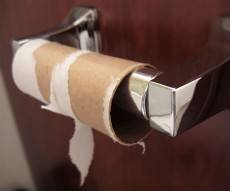September 16, 2015
Many SMEs know how staff contribute to growth but still ignore their wellbeing 0
 The owners and managers of British small businesses understand that employees are critical to their success but a surprisingly large proportion believe that their health and wellbeing is not something that should be a concern for the firm. That is the main claim of a new survey from healthcare provider Bupa. According to its study of 500 small business owners and directors, two thirds (63 percent) agree that employing the right people is critical to the growth of the business in its early stages. Yet, less than half (46 percent) believe employee health and wellbeing will play a key role in their future growth strategy. This is in spite of the fact that three quarters (76 percent) of SMEs who have had an employee take a long sickness absence reported a significant impact on the growth of their business. Meanwhile, nearly half (46 percent) believe even an early short-term absence would have had an adverse effect.
The owners and managers of British small businesses understand that employees are critical to their success but a surprisingly large proportion believe that their health and wellbeing is not something that should be a concern for the firm. That is the main claim of a new survey from healthcare provider Bupa. According to its study of 500 small business owners and directors, two thirds (63 percent) agree that employing the right people is critical to the growth of the business in its early stages. Yet, less than half (46 percent) believe employee health and wellbeing will play a key role in their future growth strategy. This is in spite of the fact that three quarters (76 percent) of SMEs who have had an employee take a long sickness absence reported a significant impact on the growth of their business. Meanwhile, nearly half (46 percent) believe even an early short-term absence would have had an adverse effect.










 The Government is being urged to reassess its plans to request an opt-out from the EU Working Time Directive, when it seeks to renegotiate the terms of the UK’s membership of the EU. The Directive stipulates a 48 hour working week, which the Government has argued is stifling competitiveness and flexibility. According to research by
The Government is being urged to reassess its plans to request an opt-out from the EU Working Time Directive, when it seeks to renegotiate the terms of the UK’s membership of the EU. The Directive stipulates a 48 hour working week, which the Government has argued is stifling competitiveness and flexibility. According to research by 




 A new meta analysis compiled by researchers from Harvard Business School and Stanford University raises questions about the way Government and organisational policies designed to tackle the problems of work related health costs in the United States have largely ignored the health effects of ‘psychosocial workplace stressors’ such as high job demands, economic insecurity, and long work hours. The analysis of 228 existing studies assessed the effects of ten workplace stressors on four specific health outcomes. The researchers claims that job insecurity increases the odds of reporting poor health by about 50 percent, high job demands raise the odds of having a diagnosed illness by 35 percent, and long work hours increase mortality by almost 20 percent. They argue that any policies designed to address these issues should account for the health effects of the workplace environment.
A new meta analysis compiled by researchers from Harvard Business School and Stanford University raises questions about the way Government and organisational policies designed to tackle the problems of work related health costs in the United States have largely ignored the health effects of ‘psychosocial workplace stressors’ such as high job demands, economic insecurity, and long work hours. The analysis of 228 existing studies assessed the effects of ten workplace stressors on four specific health outcomes. The researchers claims that job insecurity increases the odds of reporting poor health by about 50 percent, high job demands raise the odds of having a diagnosed illness by 35 percent, and long work hours increase mortality by almost 20 percent. They argue that any policies designed to address these issues should account for the health effects of the workplace environment.





















September 18, 2015
Majority of workers go into the workplace when they should be off sick 0
by Sara Bean • Comment, News, Wellbeing, Workplace
Debates around presenteeism tend to revolve around staff checking their emails while on holiday, but another potentially more destructive behaviour is that of the worker who reckons they’re so indispensable they insist on coming into the workplace when they’re ill. In a recent survey, 89 percent of workers said they had gone into work when they were not well, which is why it is hardly surprising that almost three quarters (71 percent) of employees have reported catching an illness from a sick colleague. According to the research by Canada Life, almost a third (32 percent) said their workload was too great for them to take time off for illness, and 80 percent would not take time off for stress-related illnesses. Employees were also worried about being perceived as lazy (13 percent), inconsiderate (10 percent) and weak (10 percent) if they took time off for a short-term illness.
More →